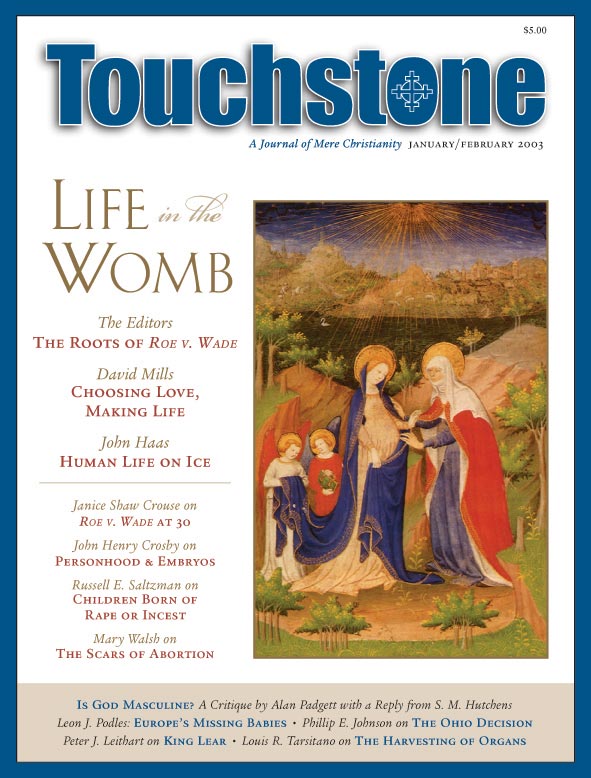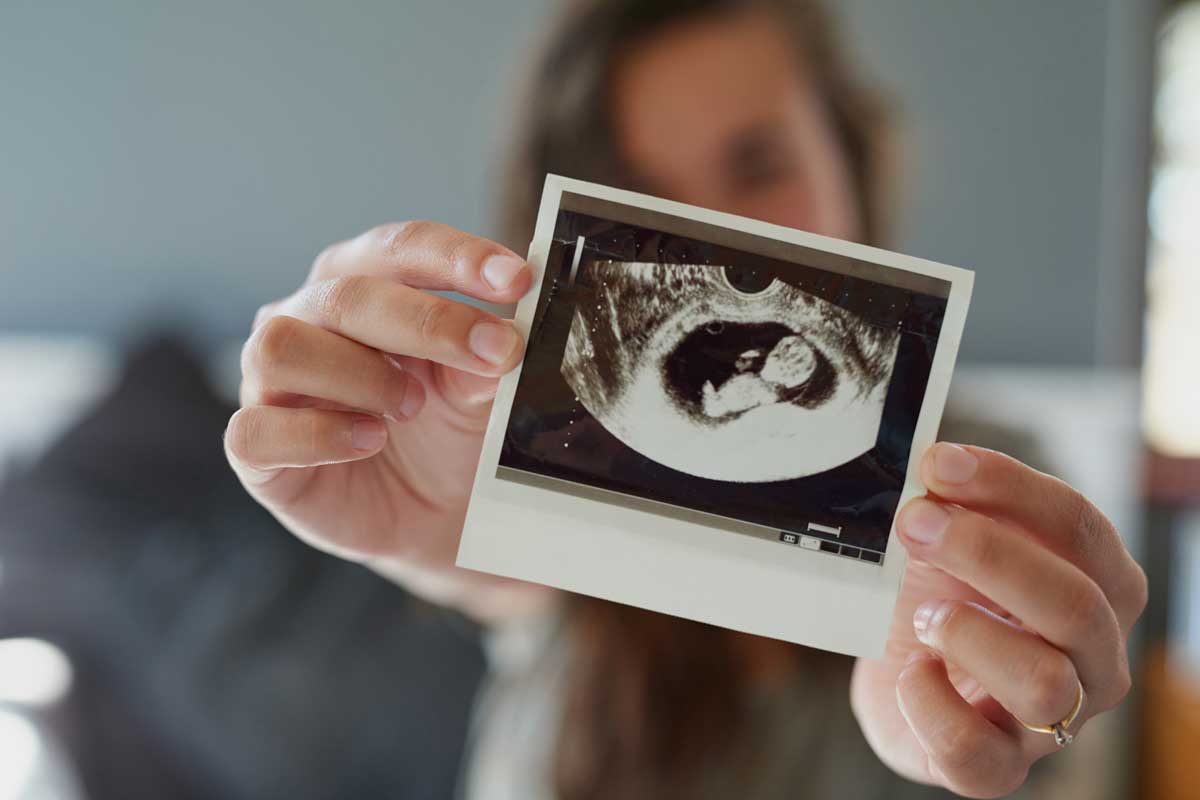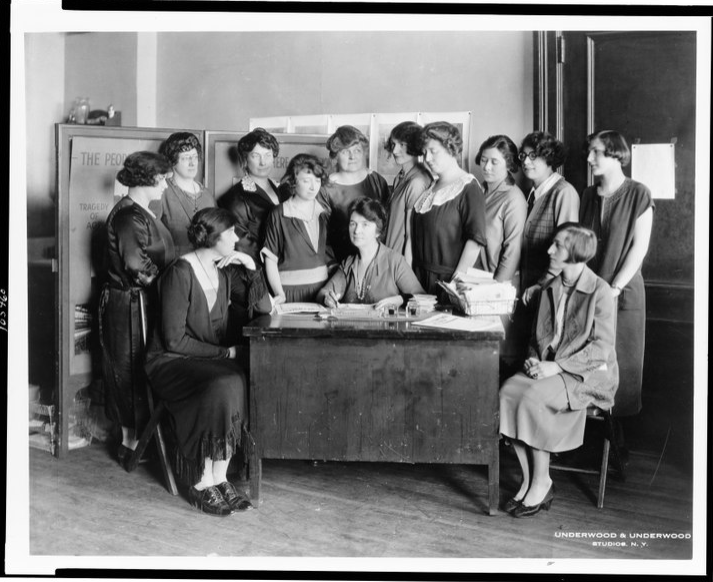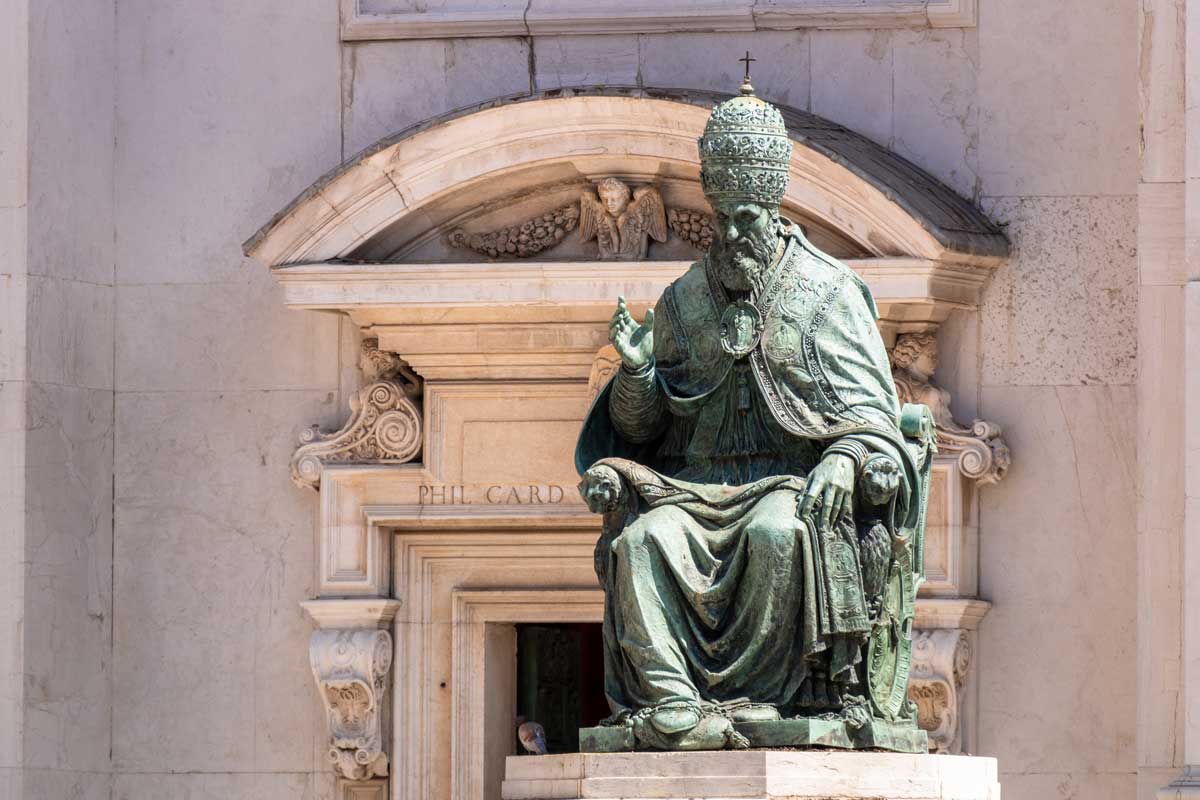Everything Personal
Russell E. Saltzman on Children Born of Rape or Incest
I belong to an on-line support group (me, in a support group, there’s a picture) composed of adult children born of rape or incest. There are more of us in the former category than the latter. Jennifer is our webmistress, organizer, facilitator, coach, head nanny, chief nag (though very nice about it), and the child of a violent rape. Mostly, I lurk. But for some in the group, I am a kind of unofficial chaplain and sometime pastoral advisor. There are children born before Roe v. Wade as well as children born after Roe v. Wade. The handles adopted by some in the group are evocative: “former fetus,” “unawares angel,” names like that.
We tell stories about how we found out about our birth circumstances, what that knowledge has meant. For every one of us, it was a discovery. No one was raised knowing the circumstances of his birth, but all of us are adoptees who simply wanted to know our origins for medical reasons or just to gain a more complete personal sense of identity. Finding we were children of rape was an incidental outcome, but always a fundamental shock. The biographical fact of adoption, frequently problematic in its own way, can become impossibly complicated with that extra layer of detail squatting on top of it. My conception and birth were the product of stepsibling incest.
If you want a genuine encounter with Angst 101—all the old “why am I here?” questions with none of the sophomoric abstractions attached—our chat room positively wallows in it, and for understandable reasons. These are ordinary people, after all, fairly attuned to the ordinary pulses of good and evil in this world, trying to come to grips with how their life can be the result of something that was so horrifically bad for someone else. Still, as I always ask when that question arises, cannot a child born of rape be an instance of God working good from evil, a lesson that Joseph learned and then taught to his brothers?
We get into discussions about our discussions with pro-choice advocates. There isn’t one of us who hasn’t been told by a pro-choice supporter that support for abortion, especially in those hard cases like rape, is, of course, “nothing personal.” I’m sure the delegates at the Presbyterian Church (USA) meeting in Columbus, Ohio, late last June would say the same thing. The PCUSA general assembly voted 394 to 112 in support of an unrestricted right to abortion, at least until such time as the fetus can survive outside the womb. Thereafter, abortion should be done only to preserve the life of the mother, to “avoid fetal suffering,” or in cases of rape and incest.
The Presbyterians have adopted a position similar to that of the Evangelical Lutheran Church in America, and like the ELCA, PCUSA’s medical benefits plan for clergy and church workers regards an elective abortion as a reimbursable medical expense. There is no reimbursement for an elective nose job, even if your nose is big enough to qualify as a county in Rhode Island, but that’s just policy, nothing personal. (I am a pastor in the ELCA, but I dropped out of the health plan years ago over its support for abortion.)
Back to Angst 101. Everyone deals with issues of birth and origin—well, they do if they are conscious and sentient. The perilous biologic journey of sperm and egg from conception to zygote to blastocyst to embryo to fetus is just so much random chance that particular questions about the particularity that you represent are inevitable. If somebody had a headache that night, you wouldn’t be here. If the 64-some cells that formed the blastocyst had failed to travel the fallopian tubes, you wouldn’t be here. If the blastocyst had failed to implant itself on the uterine wall, you wouldn’t be here. There are a thousand natural reasons why you should not be here, and the chances of your being here at all are unutterably impossible.
The chances of pregnancy from rape are even chancier. Actual pregnancies resulting from reported rapes are ridiculously miniscule, point-oh-oh-oh-something per thousand. But it is always somebody’s bad luck when they do happen and the “ifs” roll on. If she had stayed out of the parking lot that night; if she had been more aware of her surroundings; if the guy she met hadn’t been a twisted creep; if her stepbrother hadn’t forced her on the sofa. If.
Absent a creator—absent God, the Father almighty, maker of heaven and earth—your conception and birth are exactly that, dumb blind chance. Yet we say that God, the Father almighty, maker of heaven and earth, made you. And me. And a very talented, warm-hearted woman named Jennifer, with two sweet kids of her own. Her body itself, and my body, aging though it is, carries a living and breathing rebuke to those who regard human life as a matter of convenience. Against all appearances to the contrary, imagine this: God, the Father almighty, maker of heaven and earth, made her, made me, made you. It is more personal than the Presbyterians or the Lutherans will admit.
Russell E. Saltzman is pastor of Ruskin Heights Lutheran Church, Kansas City, Missouri, and editor of the independent Lutheran publication Forum Letter. This is reprinted with permission from the August 2002 Forum Letter, and is copyright 2002 by the American Lutheran Publicity Bureau.
subscription options
Order
Print/Online Subscription

Get six issues (one year) of Touchstone PLUS full online access including pdf downloads for only $39.95. That's only $3.34 per month!
Order
Online Only
Subscription

Get a one-year full-access subscription to the Touchstone online archives for only $19.95. That's only $1.66 per month!
bulk subscriptions
Order Touchstone subscriptions in bulk and save $10 per sub! Each subscription includes 6 issues of Touchstone plus full online access to touchstonemag.com—including archives, videos, and pdf downloads of recent issues for only $29.95 each! Great for churches or study groups.
Transactions will be processed on a secure server.
more on abortion from the online archives
more from the online archives
calling all readers
Please Donate
"There are magazines worth reading but few worth saving . . . Touchstone is just such a magazine."
—Alice von Hildebrand
"Here we do not concede one square millimeter of territory to falsehood, folly, contemporary sentimentality, or fashion. We speak the truth, and let God be our judge. . . . Touchstone is the one committedly Christian conservative journal."
—Anthony Esolen, Touchstone senior editor













